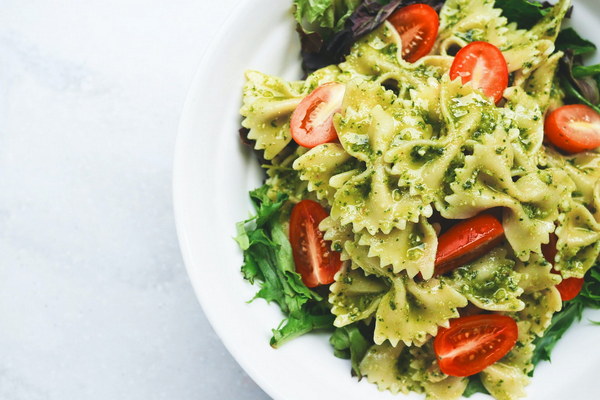Reviving Vitality A Comprehensive Guide to Nurturing Your Body for Qi Deficiency
In the realm of traditional Chinese medicine, Qi (pronounced chee) is considered the vital life force that flows through the body, sustaining and energizing all its functions. When Qi is depleted or imbalanced, it leads to what is known as Qi Deficiency. This condition can manifest in various ways, including fatigue, weakness, and a general lack of vitality. Here's a comprehensive guide to nurturing your body to combat Qi Deficiency.
Understanding Qi Deficiency
Qi Deficiency can be caused by a variety of factors, including stress, poor nutrition, overexertion, and chronic illness. It is characterized by a feeling of constant tiredness, lack of energy, and a general sense of weakness. To address this issue, it's important to understand the root causes and the holistic approach needed for recovery.
1. Balanced Diet
A balanced diet rich in nutrients is crucial for replenishing Qi. Here are some key dietary recommendations:
- Complex Carbohydrates: These provide sustained energy release. Include whole grains, legumes, and vegetables.
- Protein: Essential for muscle repair and immune function. Lean meats, fish, eggs, and plant-based sources like beans and lentils are excellent choices.
- Healthy Fats: Avocado, nuts, seeds, and olive oil are good sources of healthy fats that support overall health.
- Vitamins and Minerals: Focus on foods rich in iron, vitamin B12, and vitamin D, which are essential for Qi production. Leafy greens, nuts, and fortified foods can help.
- Herbs and Supplements: Certain herbs like ginseng and astragalus are traditionally used to boost Qi. Consult with a healthcare professional before starting any new supplement.
2. Regular Exercise
Physical activity is vital for Qi circulation. Gentle exercises such as tai chi, qigong, or yoga can help improve Qi flow without overexerting the body. Here are some tips:
- Start Slowly: If you're new to exercise, begin with low-intensity activities and gradually increase the intensity.
- Consistency: Aim for at least 30 minutes of moderate exercise most days of the week.
- Breathing: Focus on deep, slow breathing to enhance Qi flow during your workouts.
3. Adequate Rest
Rest is crucial for Qi replenishment. Ensure you get enough quality sleep each night, and consider short naps if needed during the day.
4. Stress Management
Chronic stress can deplete Qi. Techniques such as mindfulness meditation, deep breathing exercises, and time spent in nature can help reduce stress levels.
5. Acupuncture and Traditional Chinese Medicine

Acupuncture, herbal medicine, and other traditional Chinese medicine (TCM) practices can help balance Qi. These treatments are often tailored to the individual's specific Qi Deficiency.
6. Lifestyle Adjustments
- Moderation: Avoid excessive alcohol, caffeine, and tobacco, as these can further deplete Qi.
- Hydration: Drink plenty of water to support overall body function.
- Warmth: Keep your body warm, as cold can lead to Qi congestion.
Conclusion
Reviving vitality and addressing Qi Deficiency requires a holistic approach that includes diet, exercise, rest, stress management, and possibly professional treatments. By incorporating these practices into your daily life, you can gradually restore your Qi and improve your overall health and well-being. Remember, the journey to Qi balance is a personal one, and it's important to listen to your body and adjust your practices accordingly.









